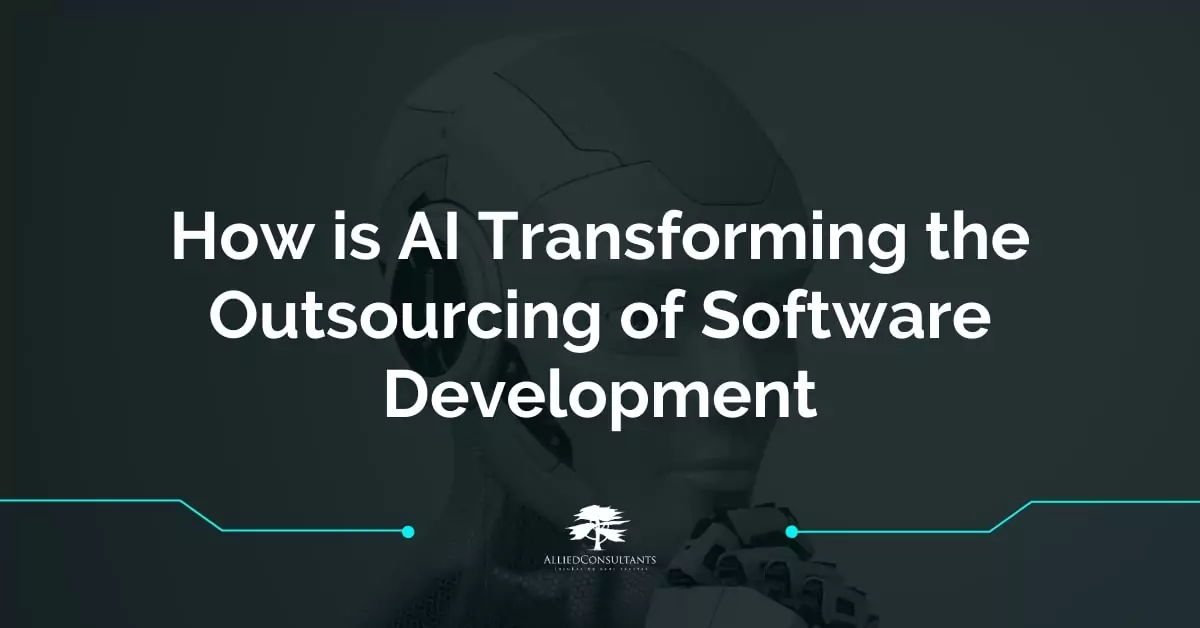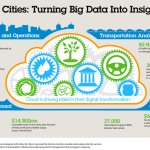How is AI Transforming the Outsourcing of Software Development
In the ever-evolving landscape of technology, artificial intelligence (AI) is making waves across various sectors, and software development is no exception. AI is not just a buzzword anymore; it’s a game-changer, especially when outsourcing software development. This article delves into how AI is reshaping this field, making it more efficient, reliable, and innovative. We’ll explore real-world examples, research findings, and the practical implications of these advancements.
The Rise of AI in Software Development
AI’s integration into software development isn’t just a trend; it’s a necessity driven by the need for faster, more accurate, and cost-effective solutions. Traditional outsourcing models often need help with communication barriers, time zone differences, and varying levels of expertise. AI mitigates these issues by streamlining processes and enhancing collaboration.
1 – Enhanced Efficiency and Productivity
One of the most significant impacts of AI in outsourcing software development is the boost in efficiency. AI tools can automate repetitive tasks, allowing developers to focus on more complex problems. For instance, AI-powered code generators can write boilerplate code, reducing developers’ time on mundane tasks. A study by McKinsey found that AI could increase productivity by up to 40% in software development tasks.
2 – Improved Quality and Reduced Errors
Quality assurance (QA) is a critical aspect of software development. Traditional QA processes can be time-consuming and prone to human error. AI-driven testing tools can perform more thorough and faster testing than manual methods. These tools can predict potential bugs by analyzing previous code and identifying patterns that typically lead to errors. According to a report by Deloitte, AI-driven QA tools can reduce the number of defects by up to 30%, leading to more reliable software products.
3 – Facilitating Better Decision Making
AI’s ability to quickly analyze vast amounts of data allows for more informed decision-making in software development. AI algorithms can assess market trends, user preferences, and competitive products, providing valuable insights that help planning and development. This data-driven approach ensures that the outsourced development aligns closely with business objectives and market demands.
4 – Enhanced Collaboration and Communication
Due to geographical and cultural differences, communication has always been challenging in outsourced projects. AI-powered communication tools, such as natural language processing (NLP) and real-time translation services, are bridging these gaps. These tools enable seamless interaction between teams in different parts of the world, ensuring everyone is on the same page. Gartner predicts that by 2025, 75% of conversations at work will be recorded and analyzed to improve communication and productivity.
5 – Cost Efficiency and Scalability
Outsourcing software development is often driven by the need to reduce costs. AI further enhances cost efficiency by automating processes and reducing the need for extensive human intervention.
Moreover, AI enables scalability in outsourcing projects. Companies can scale their development efforts up or down based on their needs without worrying about the limitations of human resources. For example, an AI-driven development platform can handle increased workloads during peak times and scale back during slower periods, maintaining efficiency and cost-effectiveness.
6 – Real-world Applications of AI in Outsourcing
Let’s look at some real-world applications where AI is making a significant impact on outsourced software development:
Chatbots and Virtual Assistants: Many outsourcing firms incorporate AI-powered chatbots to handle customer service and support tasks. These bots can manage queries around the clock, providing immediate assistance and freeing up human agents for more complex issues.
AI-Powered Development Tools: Tools like GitHub Copilot, which uses OpenAI’s Codex, assist developers by suggesting code snippets and entire functions as they type. This speeds up the development process and reduces the likelihood of errors.
Predictive Analytics: Outsourcing firms use AI to predict project outcomes, timelines, and potential risks. By analyzing historical data and current project parameters, AI can provide insights that help improve project management and decision-making.
Natural Language Processing (NLP): NLP helps understand and process human language, which is incredibly useful for documentation, requirements gathering, and automated support. It ensures that communication is clear and requirements are accurately captured and understood.
Challenges and Considerations
While AI brings numerous benefits, it’s essential to acknowledge the challenges and considerations associated with its integration into outsourced software development:
Data Security and Privacy: AI systems often require access to large datasets, raising concerns about data security and privacy. Outsourcing firms must ensure they comply with regulations and protect sensitive information.
Skill Gaps: Implementing AI requires specialized skills that may not be readily available. Companies must invest in training and upskilling their workforce to leverage AI tools effectively.
Ethical Concerns: Using AI in decision-making can raise ethical issues, especially if the algorithms have embedded biases. It’s crucial to ensure that AI systems are transparent and fair.
Integration with Existing Systems: Integrating AI with existing development processes and systems can be complex and require significant effort. Companies need to plan and execute this integration carefully to avoid disruptions.
Future Prospects
The future of outsourcing software development with AI looks promising. Here are some trends to watch out for:
AI-Driven Development Environments: AI capabilities will be featured in more integrated development environments (IDEs), making the development process smoother and more efficient.
Advanced Predictive Analytics: AI will continue to enhance predictive analytics, providing even more accurate forecasts and insights for project management and decision-making.
Greater Personalization: AI will enable more personalized software solutions tailored to individual user needs, enhancing user experience and satisfaction.
AI in DevOps: Integrating AI into DevOps practices will streamline the development and deployment process, improving efficiency and reducing time to market.
Conclusion
AI is undeniably transforming the landscape of outsourced software development. AI offers many benefits, from enhancing efficiency and quality to facilitating better decision-making and communication. However, addressing the associated challenges and ensuring ethical and secure implementation is essential. As AI continues to evolve, its role in outsourcing will only become more significant, driving innovation and growth in the software development industry.
By embracing these advancements, businesses can stay ahead of the curve, leveraging AI to create more efficient, reliable, and cost-effective software solutions. The future is bright for AI in outsourcing; those who adapt early will reap the most significant rewards.




![[New Post] 7 Major Challenges in adopting IoT for Retail Companies](https://alliedc.com/wp-content/uploads/2015/04/IoT-150x150.png)


